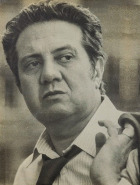

Like other writers, intellectuals, and historians, Mário Soares did not shy away from using history as a political tool to advocate for values such as freedom, democratisation, and political dialogue as a form of expression. In a 1969 speech commemorating the 31 January 1891 revolution, Soares highlighted a continuity between the issues of that period and those of contemporary Portugal, seeking to preserve this “historical legacy” of resistance and the fight for democratic ideals by critically analysing society and exploring viable solutions. A clear contrast emerges between a regime devoid of purpose and an alternative capable of advancing the nation—drawing an explicit parallel between Monarchy-Republic and Estado Novo -Democracy. As he observed, “the course of history never stops,” and lessons from the past needed to be applied to the present with a view to the future (Soares, Escritos Políticos [Political Writings], 1969, pp. 137–138, 142–143).
After the 1974 revolution, Mário Soares maintained a strong interest in history. Several themes can be identified in his public interventions, whether commemorating specific anniversaries or justifying political actions with historical references. His numerous reflections on the First Republic and the 5th of October are emblematic in this regard. Their significance in Portuguese life is evident in the construction of the democratic regime, a point highlighted by the influence of the 1911 Constitution on that of 1976. Central to this are values such as democracy and freedom, which were championed by the 1910 revolution—a culmination of ideas rooted in earlier periods of Portuguese history but realised in the First Republican declaration ( Soares, “ A democracia moderna e as lições do passado” [Modern Democracy and Lessons from the Past], 1987, pp. 62–63; “ Uma República moderna” [A Modern Republic], pp. 147–148). According to Soares, the 25th of April 1974 was a reaffirmation of the 5th of October 1910, preserving the Republican legacy, “another unique moment of the People reconnecting with History” (Soares, “Estudar criticamente a República” [Critically Studying the Republic], 1992, p. 82). Another example lies in his advocacy for administrative decentralisation and regional development—topics that were central to Soares’ political career. In addition to political, social, and economic arguments, Soares frequently referenced historical figures who championed decentralisation. It is unsurprising that he cited José Félix Henriques Nogueira and Alexandre Herculano as emblematic advocates of municipalism, which he saw as part of a long-standing and democratic tradition (Soares, “Descentralizar para desenvolver” [Decentralise to Develop], 1987, p. 91).
This work is financed by national funds through FCT - Foundation for Science and Technology, I.P, in the scope of the projects UIDB/04311/2020 and UIDP/04311/2020.
